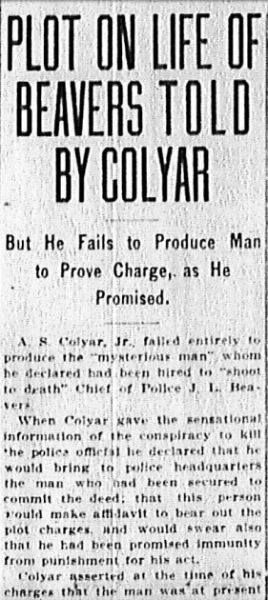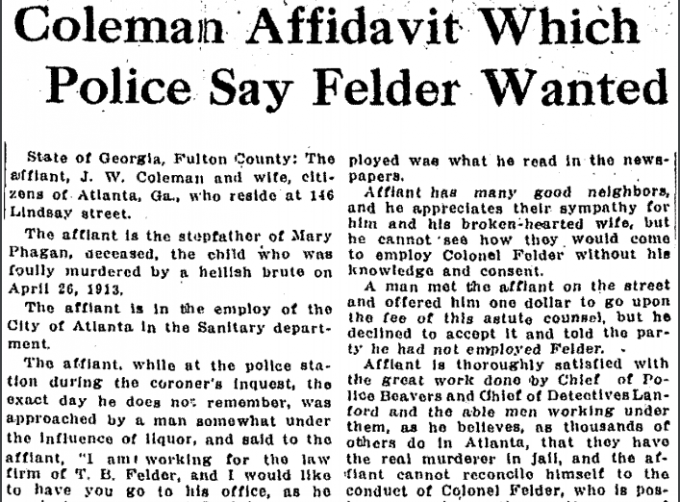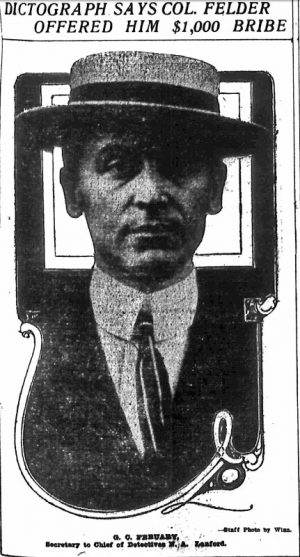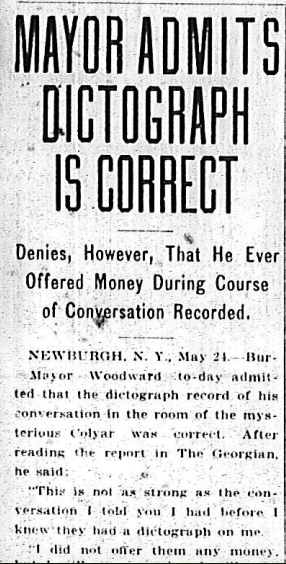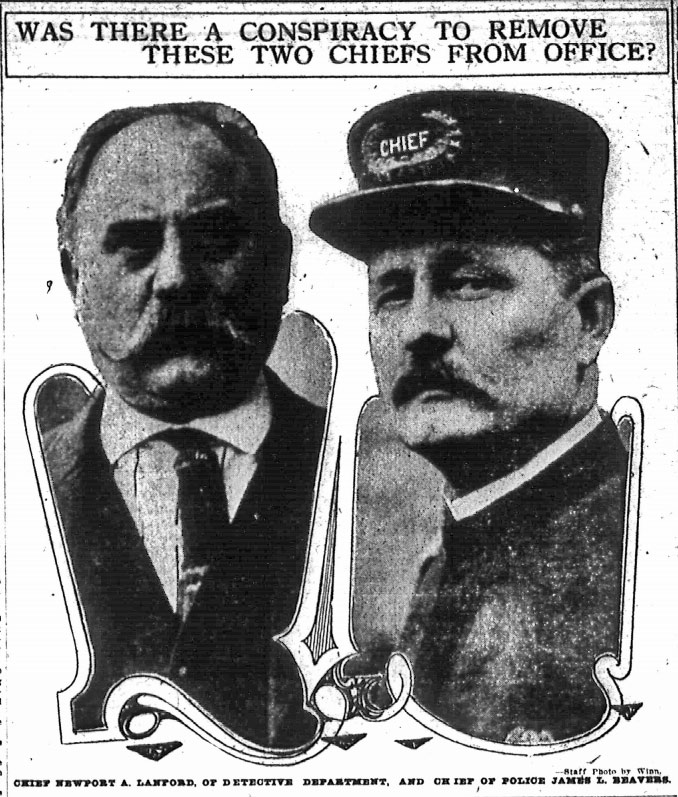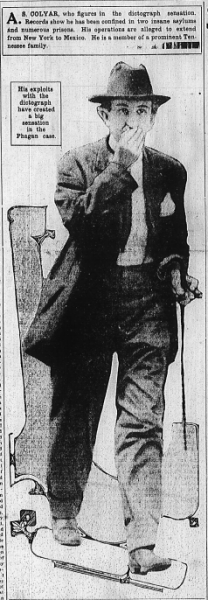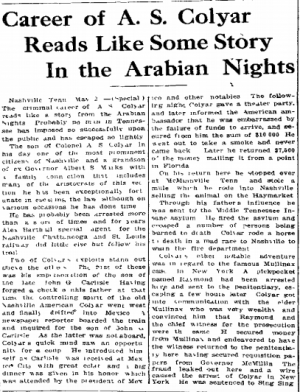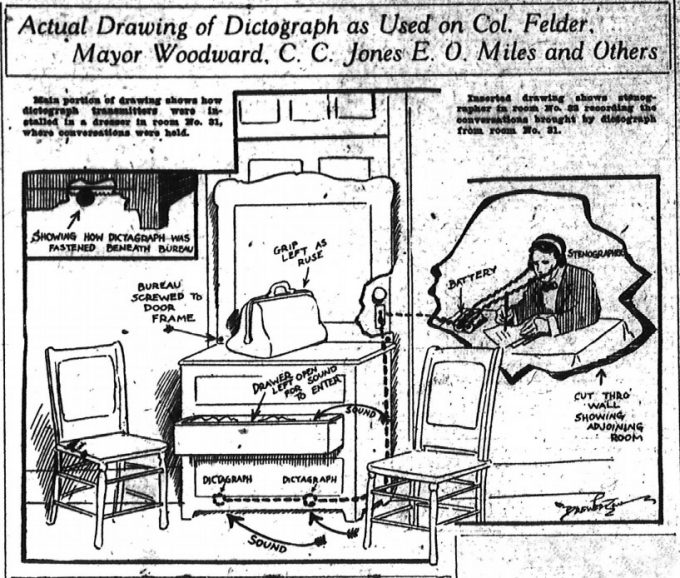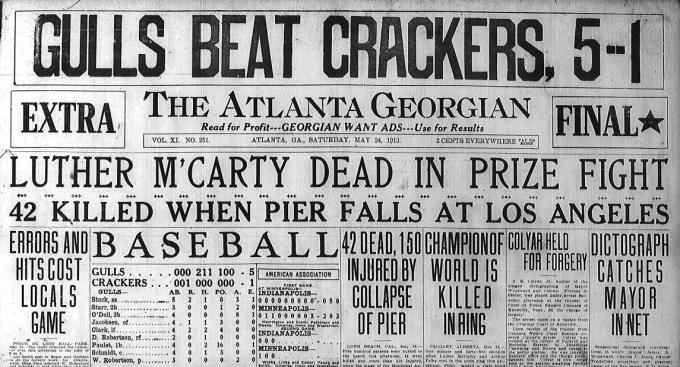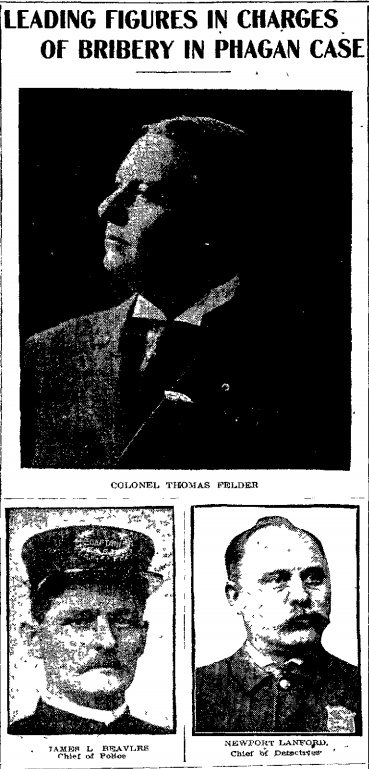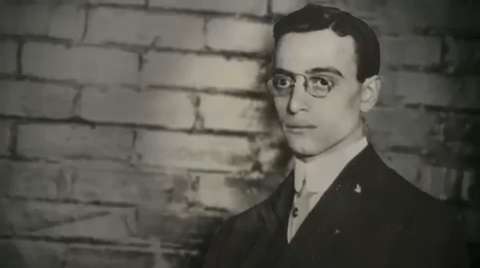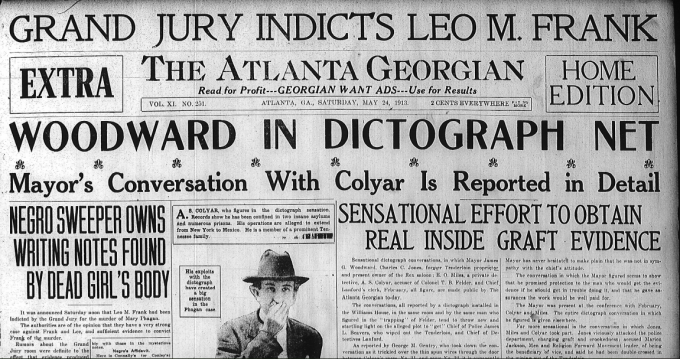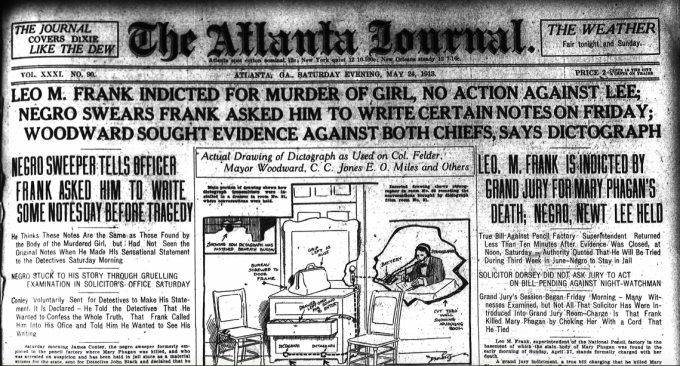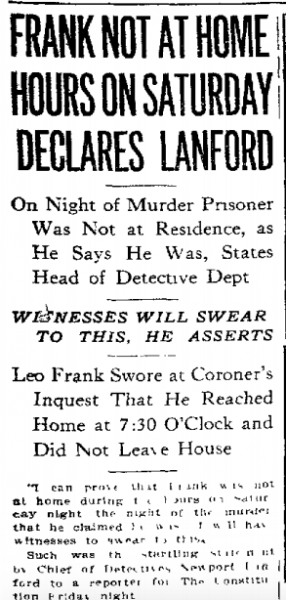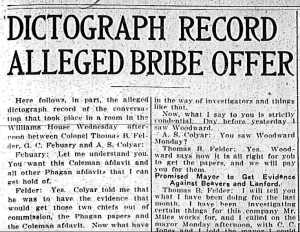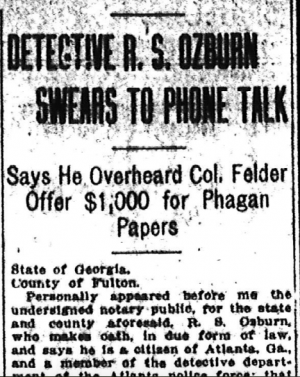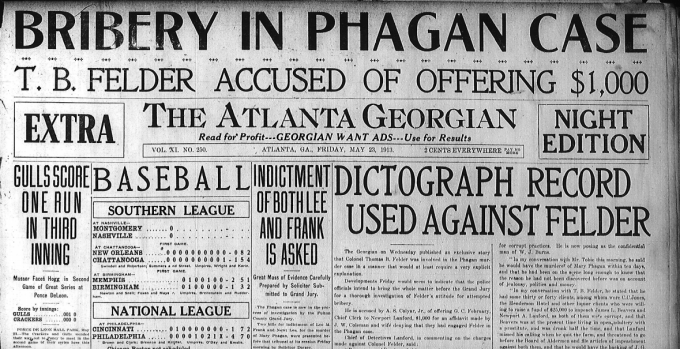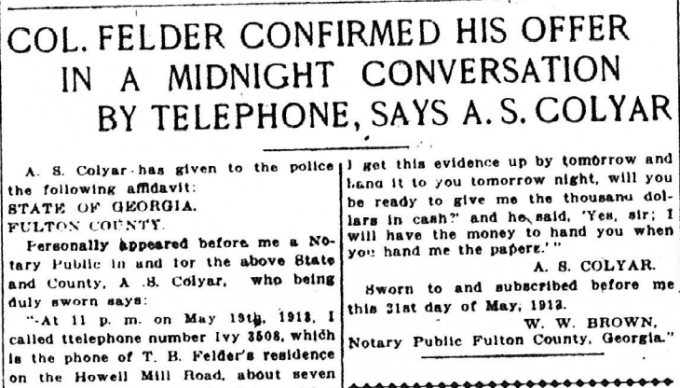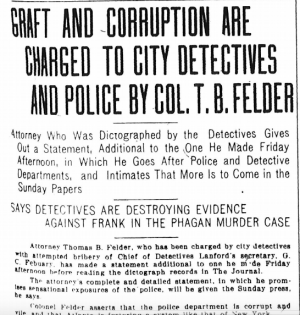 Another in our series of new transcriptions of contemporary articles on the Leo Frank case.
Another in our series of new transcriptions of contemporary articles on the Leo Frank case.
Atlanta Journal
Saturday, May 24th, 1913
Attorney Who Was Dictographed by the Detectives Gives Out a Statement, Additional to the One He Made Friday Afternoon, in Which He Goes After Police and Detective Departments, and Intimates That More Is to Come in the Sunday Papers
SAYS DETECTIVES ARE DESTROYING EVIDENCE AGAINST FRANK IN THE PHAGAN MURDER CASE
Attorney Thomas B. Felder, who has been charged by city detectives with attempted bribery of Chief of Detectives Lanford’s secretary, G. C. Febuary, has made statement additional to one he made Friday afternoon before reading the dictograph records in The Journal.
The attorney’s complete and detailed statement, in which he promises sensational exposures of the police, will be given the Sunday press, he says.
Colonel Felder asserts that the police department is corrupt and vile and that Atlanta is fostering a system like that of New York.
“I had information,” said Mr. Felder, “to the effect that the detectives have been destroying evidence against Leo M. Frank in the Phagan case.
“It was to obtain proof of this that I consented to visit A. S. Colyar’s room at the Williams House on Wednesday afternoon. Continue Reading →

